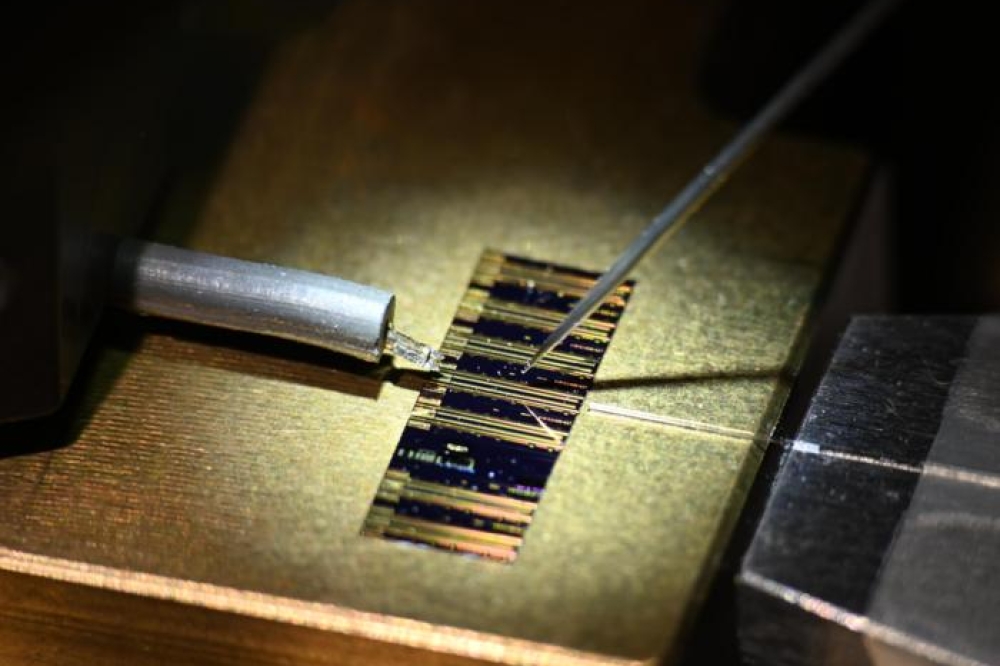News Article
Spectrolab Ships 3 Millionth GaAs Solar Cell
The Boeing wholly owned subsidiary shipped the multi-junction gallium arsenide (GaAs) space-based solar cell solar cell just last week.
Spectrolab has produced its 3 millionth multi-junction, space-based solar cell.
Production records indicate that the gallium arsenide cell was delivered during the week of 25 October 2010. Spectrolab has been manufacturing multi-junction solar cells for more than 15 years and other space products for more than 50.

"Congratulations to Spectrolab for this remarkable achievement," said Craig Cooning, VP and general manager, Boeing Space & Intelligence Systems. "Our customers expect flawless satellites that can endure many years in space to enable national-security and Earth-observation missions, as well as consumer and business communications. Spectrolab's solar cells have powered more than 500 satellites and interplanetary missions."
Since its founding in 1956, Spectrolab has led the way in the development of high-efficiency solar cells for space missions. During the Apollo 11 mission in 1969, a Spectrolab product became the first solar panel to be placed on the moon. Today, Spectrolab solar panels are the only panels in operation on Mars, as part of a reconnaissance satellite and two land-exploration rovers.
Spectrolab recently delivered solar panels to the NASA-Jet Propulsion Laboratory JUNO mission, the first mission to Jupiter to be powered by photovoltaic cells. Spectrolab's cells and panels power approximately 60 % of all satellites in Earth's orbit, as well as the International Space Station.
"Many years of continuous improvement in product design and high-volume manufacturing experience have allowed Spectrolab to develop mature, cost-effective and repeatable processes, resulting in the delivery of high-quality, reliable and affordable products to both space and terrestrial customers," said David Lillington, president of Spectrolab.
"Our business continues to grow as we gain market share. We are increasing productivity and introducing higher levels of automation to meet this increased demand. We expect to announce the production start of our next-generation space cells early next year," he continued.
In 2001, Spectrolab embarked on a strategy to adapt its space solar cell technology for terrestrial renewable-energy applications. The terrestrial solar cells convert concentrated sunlight to electricity with an average efficiency of more than 38.5 % and benefit from the same equipment, materials and processes used for space manufacturing.
In 2009, Spectrolab set a new world record in terrestrial concentrator solar efficiency with a triple-junction, lattice-matched cell that converts 41.6 % of sunlight into electricity. This year, Spectrolab will deliver approximately 50 megawatts of solar cells to its terrestrial concentrated photovoltaic customers and forecasts producing almost 150 megawatts in 2011. Spectrolab is one of the world’s leading solar cell manufacturers for space and terrestrial applications.
A unit of The Boeing Company, Boeing Defense, Space & Security is one of the world's largest defense, space and security businesses specializing in innovative and capabilities-driven customer solutions, and the world's largest and most versatile manufacturer of military aircrafts.































